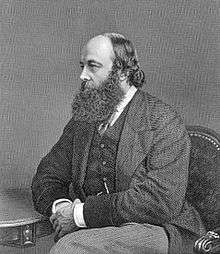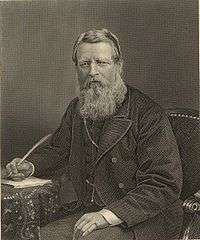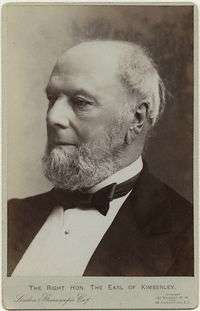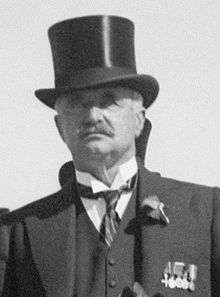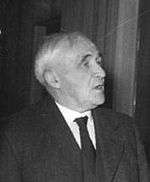Secretary of State for India
_-_BL_Foster_905.jpg)

The Secretary of State for India, or India Secretary, was the British Cabinet minister and the political head of the India Office responsible for the governance of Aden, British India and Burma. The post was created in 1858 when the East India Company's rule in Bengal ended and British India was brought under the direct administration of the government in London, beginning the official colonial period under the British Empire.
In 1937, the India Office was reorganised which separated Burma and Aden under a new Burma Office, but the same Secretary of State headed both Departments and a new title was established as the Secretary of State for India and Burma. The India Office and its Secretary of State were abolished in August 1947, when the United Kingdom granted independence to British India resulting in the creation of two new independent dominions, the Dominion of India and the Dominion of Pakistan. Myanmar (Burma) soon achieved independence separately in early 1948.
Secretaries of State for India, 1858–1937
Prior to the establishment of the British Empire on 2 August 1858, Lord Stanley had served as President of the Board of Control.
Secretaries of State for India and Burma, 1937–1947
| Name | Portrait | Term of office | Political party | Prime Minister | |||
|---|---|---|---|---|---|---|---|
| The Marquess of Zetland | | 28 May 1937 | 13 May 1940 | Conservative | Neville Chamberlain (4th National Min.; War Coalition) | ||
| Leo Amery |  | 13 May 1940 | 26 July 1945 | Conservative | Winston Churchill (War Coalition; Caretaker Min.) | ||
| The Lord Pethick-Lawrence | 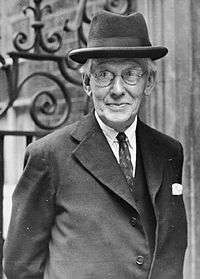 | 3 August 1945 | 17 April 1947 | Labour | Clement Attlee | ||
| The Earl of Listowel | | 17 April 1947 | 14 August 1947 | Labour | |||
Secretaries of State for Burma, 1947–1948
| Name | Portrait | Term of office | Political party | Prime Minister | |||
|---|---|---|---|---|---|---|---|
| The Earl of Listowel | | 14 August 1947 | 4 January 1948 | Labour | Clement Attlee | ||
See also
- India Office
- British India
- British rule in Burma
- Governor-General of India
- Imperial Civil Service
- Government of India Act
| History of United Kingdom government departments with responsibility for foreign affairs | ||||||||
|---|---|---|---|---|---|---|---|---|
| Colonial Office 1768–1782 Secretaries Undersecretaries |
Home Office 1782–1794 Secretaries Undersecretaries |
War Office 1794–1801 Secretaries Undersecretaries |
War and Colonial Office 1801–1854 Secretaries Undersecretaries |
Colonial Office 1854–1925 Secretaries Undersecretaries |
Colonial Office 1925–1966 Secretaries Ministers Undersecretaries |
Commonwealth Office 1966–1968 Secretaries Ministers Undersecretaries |
Foreign and Commonwealth Office 1968–present Secretaries Ministers Undersecretaries | |
| Dominions Office 1925–1947 Secretaries Undersecretaries |
Commonwealth Relations Office 1947–1966 Secretaries Ministers Undersecretaries | |||||||
| . | India Office 1858–1937 Secretaries Undersecretaries |
India Office and Burma Office 1937–1947 Secretaries Undersecretaries | ||||||
| . | Foreign Office 1782–1968 Secretaries Ministers Undersecretaries | |||||||
Notes
External links
| Wikimedia Commons has media related to Secretaries of State for India. |



